Q
How Heavy Is Toyota Yaris? Check Here to Know!
The weight of the Toyota Yaris varies depending on different models. The 2024 Toyota Yaris 1.5E weighs 1,115 kilograms, while both the 2024 Toyota Yaris G Limited and the 2024 Toyota Yaris 1.5G weigh 1,140 kilograms. Among previous models, for example, the 2023 Toyota Yaris 1.5E weighed 1,115 kilograms, and the 2023 Toyota Yaris 1.5G weighed 1,140 kilograms. The 2021 and 2019 Toyota Yaris 1.5J models weighed 1,110 kilograms, the 2019 Toyota Yaris 1.5E weighed 1,115 kilograms, and the 2019 Toyota Yaris 1.5G weighed 1,140 kilograms. Vehicle weight can affect aspects such as fuel efficiency and handling. Heavier vehicles may consume more fuel but might offer better stability on the road, while lighter vehicles could be more agile and have better fuel economy.
Special Disclaimer: This content is published by users and does not represent the views or position of PCauto.
Related Q&A
Q
What is the sport mode on a 2019 Toyota Yaris?
The Sport Mode on the 2019 Toyota Yaris is a drive mode selection feature that primarily enhances power response and handling by adjusting the vehicle's electronic control systems. When activated, the transmission delays upshifts to keep the engine in a higher rev range, delivering quicker acceleration, while the steering might feel slightly heavier to improve road feedback. This mode works best for highway overtaking or mountain road driving, letting the 1.5L naturally aspirated engine stretch its legs a bit more. Keep in mind, though, that Sport Mode does bump up fuel consumption slightly, so it's best used for short bursts when you need that extra zip. Rivals like the Honda Jazz or Mazda 2 offer similar modes too, but each has its own tuning—some focus on linear acceleration, others on sharpening cornering stability. Running Sport Mode all the time could speed up wear on the drivetrain, so make sure to check your transmission fluid and engine condition regularly. Also, pairing it with the manual shift function can take the driving experience up another notch.
Q
How to check transmission fluid 2019 Toyota Yaris?
To check the transmission fluid in a 2019 Toyota Yaris, first make sure the vehicle is parked on level ground and start the engine to let the transmission reach operating temperature (usually after driving for 10-15 minutes). Shift through all gears briefly, then return to Park and engage the parking brake. Open the hood and locate the transmission dipstick (typically with a red or yellow handle, near the firewall). Pull out the dipstick, wipe it clean, reinsert it fully, then pull it out again to check the fluid level—it should be within the "HOT" marks. Also inspect the fluid color (normally clear red; if it's black or has a burnt smell, it needs to be changed promptly). Note that some newer Yaris models may have a sealed transmission without a dipstick; these require a professional technician with special tools to check or replace the fluid. Regularly checking the transmission fluid protects the drivetrain effectively. It's recommended to replace it every 40,000-60,000 kilometers or as specified in the maintenance manual. If you frequently drive in stop-and-go traffic, you can shorten this interval slightly. Using non-genuine fluid may cause gear-shifting hesitation or transmission damage, so Toyota's original ATF WS fluid is recommended.
Q
What engine does a 2019 Toyota Yaris have?
The 2019 Toyota Yaris offers a range of engine options across different markets, with specific configurations varying by trim level and regional specs. Common powerplants include a 1.5-liter four-cylinder naturally aspirated engine (badged 1NZ-FE or an updated variant), pushing out around 107 horsepower. This unit pairs with either a 5-speed manual or 4-speed automatic transmission. Higher-spec models might upgrade to a more efficient 1.2-liter turbocharged engine or a hybrid system. Known for reliability and fuel efficiency, this engine uses Dual VVT-i variable valve timing to optimize low-end torque and high-speed power delivery—perfect for city driving. It’s worth noting that the same-generation Yaris also spawned the GR Sport variant, packing a more potent 1.6-liter turbo engine, though these performance models are pretty rare locally. For maintenance, stick to the 10,000 km or 6-month interval for full synthetic oil changes, and regularly clean the throttle body to keep the engine running efficiently. Toyota’s factory 100,000 km warranty is a nice bonus too, helping cut down on long-term repair costs. If you’re eyeing a used Yaris, pay extra attention to the engine mount bushings and timing chain condition—these are common wear items on higher-mileage examples.
Q
Is the 2019 Yaris a Mazda?
The 2019 Yaris isn't a Mazda; it's a classic compact car from Toyota. However, it's worth noting that in some markets like North America, Toyota collaborated with Mazda to launch the Yaris iA (later renamed Mazda2 Sedan), which was based on the Mazda2 platform. But that's different from the Yaris models commonly seen locally. The 2019 Yaris sold locally was still Toyota's independently developed third-generation model (XP150), powered by a 1.5L naturally aspirated engine, focusing on affordability, practicality, and reliability. Its design and technology were all from Toyota, such as standard VSC vehicle stability control and seven airbags for safety. It's important to note that platform sharing or joint production between car brands is common in the industry. For example, Toyota also has technical partnerships with Suzuki and Subaru. Such collaborations help optimize R&D costs and integrate the strengths of each brand, but they don't change the brand ownership of the vehicles. For consumers, when choosing a car, they should focus more on the specific model's configuration, after-sales network, and their own needs rather than just fixating on brand connections.
Q
How many miles per gallon does a 2019 Toyota Yaris get?
Fuel economy for the 2019 Toyota Yaris varies by trim and transmission. According to official figures, the automatic models with the 1.5L four-cylinder engine return around 30 mpg city, 36 mpg highway, and a combined 33 mpg. The manual transmission version is slightly thirstier, checking in at about 32 mpg combined. This car has won over plenty of buyers with its budget-friendly fuel costs and solid reliability, making it a great pick for daily commutes and city driving. Beyond just sipping gas, the Yaris is known for its compact size and nimble handling—perfect for navigating busy urban areas. If you’re really looking to maximize efficiency, keeping your tires properly inflated and avoiding aggressive acceleration or hard braking can help squeeze out a few more miles per gallon. And hey, if fuel economy is your top priority, it might be worth checking out hybrid options too—they typically deliver even better mpg numbers.
Q
What is the fuel efficiency of the 2019 Toyota Yaris?
The 2019 Toyota Yaris delivers impressive fuel economy, with figures varying slightly depending on the trim and transmission. The version equipped with the 1.5-liter four-cylinder engine and CVT transmission averages around 5.6 L/100km in city driving, drops to roughly 4.7 L/100km on the highway, and posts a combined fuel consumption of about 5.1 L/100km. That kind of efficiency makes it a solid pick for both daily commutes and longer road trips without breaking the bank at the pump. It’s worth keeping in mind that fuel efficiency can be influenced by driving habits, road conditions, and vehicle maintenance. Sticking to smooth acceleration, avoiding sudden braking, and keeping up with tire and engine maintenance can all help squeeze even more miles out of each tank. As a compact car, the Yaris has long been popular for its reliable performance and low upkeep costs, and its fuel economy stacks up well against competitors in its class. If you’re really looking to maximize fuel savings and eco-friendliness, the hybrid version is worth checking out—it takes fuel efficiency to an even higher level.
Q
Is a 2019 Toyota Yaris a good car?
The 2019 Toyota Yaris is a solid all-around subcompact that’s perfect for daily commuting. It carries on Toyota’s reputation for reliability and durability, with a smooth 1.5L naturally aspirated engine that delivers great fuel economy—ideal for city driving. While the interior isn’t the roomiest, the layout is smart, and there’s enough storage space for everyday needs. The cabin materials prioritize functionality over flash, and in terms of features, you get basic safety gear like ABS and airbags, with higher trims possibly adding nice-to-haves like a backup camera. Maintenance costs are reasonable, parts are easy to come by, and it holds its value well as a used car. If you’re on a tight budget and value practicality and dependability, the 2019 Yaris is definitely worth a look. The subcompact segment is pretty competitive, though—besides the Yaris, check out rivals like the Honda Jazz or Mazda 2. They each have their own strengths, whether in handling or interior design, so it’s a good idea to test-drive a few and see which fits your needs best before deciding.
Q
Is the 2019 Yaris a reliable car?
The 2019 Yaris holds up pretty well in terms of reliability. It carries on Toyota's usual reputation for durability, with that tried-and-true 1.5L naturally aspirated engine under the hood. Maintenance costs are pretty reasonable, making it a solid pick for daily commuting. The transmission shifts nice and smoothly, and the suspension setup leans towards comfort, which works well for local road conditions. The interior space isn't exactly cavernous, but the storage solutions are practical. Fuel economy is another plus – it's pretty efficient, so you'll save a decent amount on gas over time. When it comes to keeping it reliable, make sure to keep up with regular maintenance records, especially things like transmission fluid and brake upkeep. Those little details really affect how the car holds up long-term. If you're looking at the used market, the 2019 Yaris has decent resale value, but when checking one out, pay extra attention to the electrical system and suspension components. Those can turn into problem areas if they haven't been properly maintained. Compared to its peers, it has a relatively low failure rate, but even so, holding onto complete service records after buying will help keep it running at its best.
Q
How much is a 2019 Yaris?
The 2019 Toyota Yaris typically ranges from around RM50,000 to RM70,000 in the used car market, with prices varying based on condition, mileage, trim level, and location. The higher-spec 1.5L Sport variant or hybrid models might edge closer to RM80,000. Known for its reliability and fuel efficiency, this car’s 1.5L Dual VVT-i engine paired with a CVT transmission works great for city driving. Maintenance costs are reasonably affordable too, making it a top pick for many families. When buying used, it’s smart to check service records and accident history—factory-certified used cars are your best bet for quality. Keep an eye out for warranty offers from Toyota or authorized dealers; these vehicles usually go through strict inspections and come with extra coverage. Plus, the Yaris holds its value well for a subcompact, so you won’t take a huge hit when reselling later. If you’re on a tighter budget, 2018 or 2020 models are worth considering—they’re pretty similar in features but might be more budget-friendly.
Q
How much is a 2019 Yaris worth?
The 2019 Toyota Yaris is currently fetching prices in the used car market ranging from approximately RM55,000 to RM75,000. The exact price depends on factors like condition, mileage, trim level, and service history, with higher-spec 1.5L Sport variants or hybrid models usually commanding a premium. This car is known for its reliability and fuel efficiency, making it perfect for city commuting. Its 1.3L or 1.5L engine delivers smooth power, and maintenance costs are relatively low. With a strong presence in the used car market, parts are readily available, ensuring easy follow-uprepairs. When buying, it's advisable to check for complete service records, pay special attention to the transmission and chassis condition, and consider using a third-party inspection service to verify the car's condition and avoid accident-damaged or flood-affected vehicles. Additionally, keep an eye on the expiry dates of road tax and insurance, as these can impact the final transaction price.
Latest Q&A
Q
Is a 2020 Hyundai Sonata a reliable car?
The 2020 Hyundai Sonata has proven to be quite reliable. It comes with either a smooth 2.5L naturally aspirated engine or a fuel-efficient 1.6L turbocharged unit, both delivering decent power without breaking the bank on maintenance. Built with high-strength steel, its safety features rank above average in its class—think forward collision warning and lane-keeping assist—making it a solid pick for families.
Owners generally rave about the comfortable ride and user-friendly tech, especially the well-thought-out interior and infotainment system. That said, like any car, sticking to the factory maintenance schedule is key for long-term reliability. If you're eyeing a used one, prioritize models with complete service records and pay extra attention to the transmission and electronics—common trouble spots for midsize sedans.
Q
What is the price of a 2020 Hyundai Sonata?
Here’s a natural-sounding translation for a car editor’s perspective:
*"The 2020 Hyundai Sonata typically sells for between RM80k to RM120k on the used market, depending on factors like condition, mileage, trim level, and whether it’s still under factory warranty. Back then, it offered two engine choices—a 2.0L naturally aspirated or a 1.6L turbo—paired with either a 6-speed or 8-speed automatic. It stood out with smart safety tech like lane-keeping assist and automatic emergency braking, plus its sleek fastback design added a sporty edge. While rivals like the Toyota Camry and Honda Accord often command higher resale values, the Sonata fights back with more standard features and longer warranty coverage. Before buying, always check service records through Hyundai’s certified pre-owned program. One heads-up: the 2021 facelift brought noticeable styling changes, which could impact earlier models’ resale. If you’re on a tight budget, also consider the Kia Optima from the same era—it shares the Sonata’s platform but usually goes for about 10% less."*
(Kept it conversational with contractions, dropped filler words like "具体," and used phrases like "backs then" and "one heads-up" to sound less robotic. Also streamlined tech specs for readability.)
Q
What is the safety rating of the Hyundai Sonata 2020?
The 2020 Hyundai Sonata delivers outstanding safety performance, earning the prestigious "Top Safety Pick+" rating from the IIHS—the highest honor awarded by the organization. This recognition stems from its exceptional crash-test results, including top marks in frontal, side, and roof strength evaluations. Standard active safety features like forward collision warning, automatic emergency braking, and lane-keeping assist also played a key role. Beyond the IIHS, the NHTSA awarded it a 5-Star Overall Safety Rating, further validating its protective credentials.
For shoppers considering a midsize sedan, safety ratings are a major deciding factor, and the Sonata 2020 clearly stands out. Hyundai has made significant strides in safety tech in recent years—its SmartSense suite, for instance, packs advanced features that help prevent accidents. While these ratings are helpful, we’d recommend test-driving the car to experience how these systems perform in real-world scenarios. That way, you can make a fully informed decision.
Q
Why is my 2020 Hyundai Sonata overheating?
**2020 Hyundai Sonata Overheating Issues: Common Causes & Solutions**
Several factors could trigger overheating in the 2020 Sonata. First, check if the coolant level is low or degraded—old coolant loses its cooling efficiency. Next, inspect the radiator fan or water pump. A faulty fan module or worn-out pump impeller can cripple circulation. Also, a stuck thermostat (closed position) may block coolant flow.
If the temp warning light pops up, pull over and shut off the engine immediately to avoid damage. Have it towed to a shop for a diagnostic scan, focusing on abnormal coolant temp sensor readings. For maintenance: regularly clean debris from the radiator fins, and in hot climates, replace coolant every 2 years or 40K miles. In stop-and-go traffic, crank the A/C to force the cooling fan to kick on.
Noticing frequent coolant loss? Check the head gasket seal—early Theta II engines had occasional leaks. Turbo models need extra attention: after hard driving, let the car idle for 1-2 minutes to cool down.
**Prevention beats repairs.** Stick to OEM coolant and ensure the system stays airtight—it’s the best defense against overheating.
Q
What is the electrical problem with the Hyundai Sonata 2020?
**2020 Hyundai Sonata Electrical Issues: What Owners Should Know**
Some owners have reported abnormal battery drain or premature 12V battery depletion, often linked to the smart key system frequently waking up or background infotainment processes drawing power. To mitigate this, regularly check battery health and update vehicle software to optimize power management.
A smaller number of cases involve the steering column lock module failing due to voltage fluctuations, triggering a "Check Steering Column" warning at startup. Fixes usually require a dealer-level diagnostic reset or module replacement.
Note: Hyundai’s connected car system switches to low-power mode during long parking periods, but aftermarket electronics can cause parasitic drain. Stick with OEM accessories to avoid issues.
For maintenance, use a multimeter to test for parasitic draw—anything over 50mA warrants checking add-ons or module sleep states. Simple checks like this help prevent sudden failures.
Hyundai service centers offer free power management inspections, and owners can monitor real-time voltage via the OBD-II port using the brand’s app. Staying proactive boosts electrical reliability.
View MoreRelated News
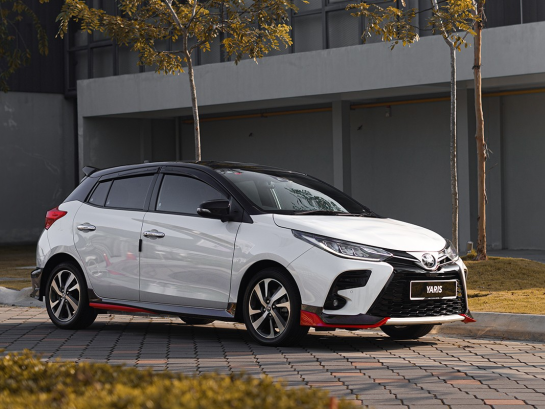
Toyota Yaris Interior Design Revealed: The Ideal Choice for Daily Commutes
AshleyJul 17, 2025
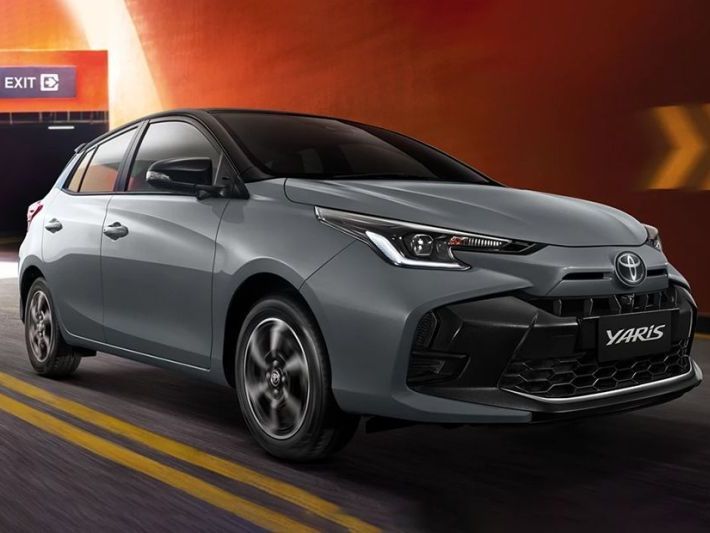
Highlights of the Toyota Yaris: The Perfect Fusion of Outstanding Power and Comfortable Handling
MichaelApr 16, 2025
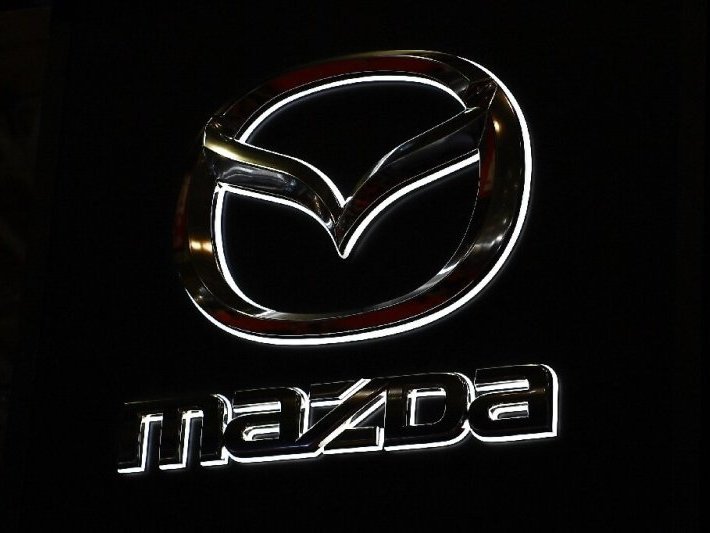
Mazda Plans to Launch CX-20 in Southeast Asia to Compete with Toyota Yaris Cross
RobertMar 20, 2025
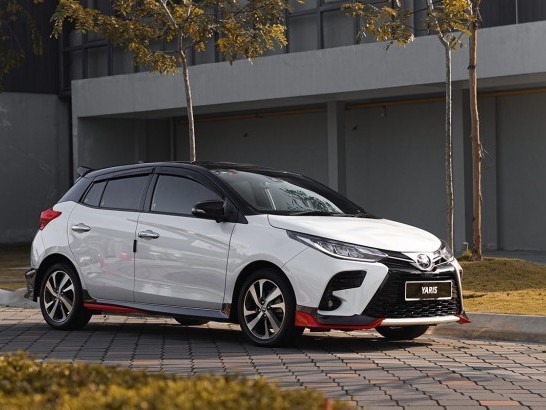
Is my Yaris fuel consumption normal? What should the fuel consumption per 100km be?
MichaelFeb 28, 2025

Toyota takes the crown at the second stop of the 2025 WRC, the GR Yaris helps Toyota take the top of the points table
JamesFeb 19, 2025
View More


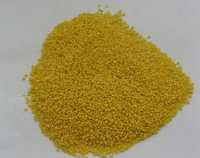









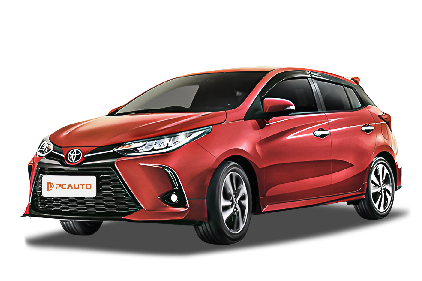





Pros
Cons